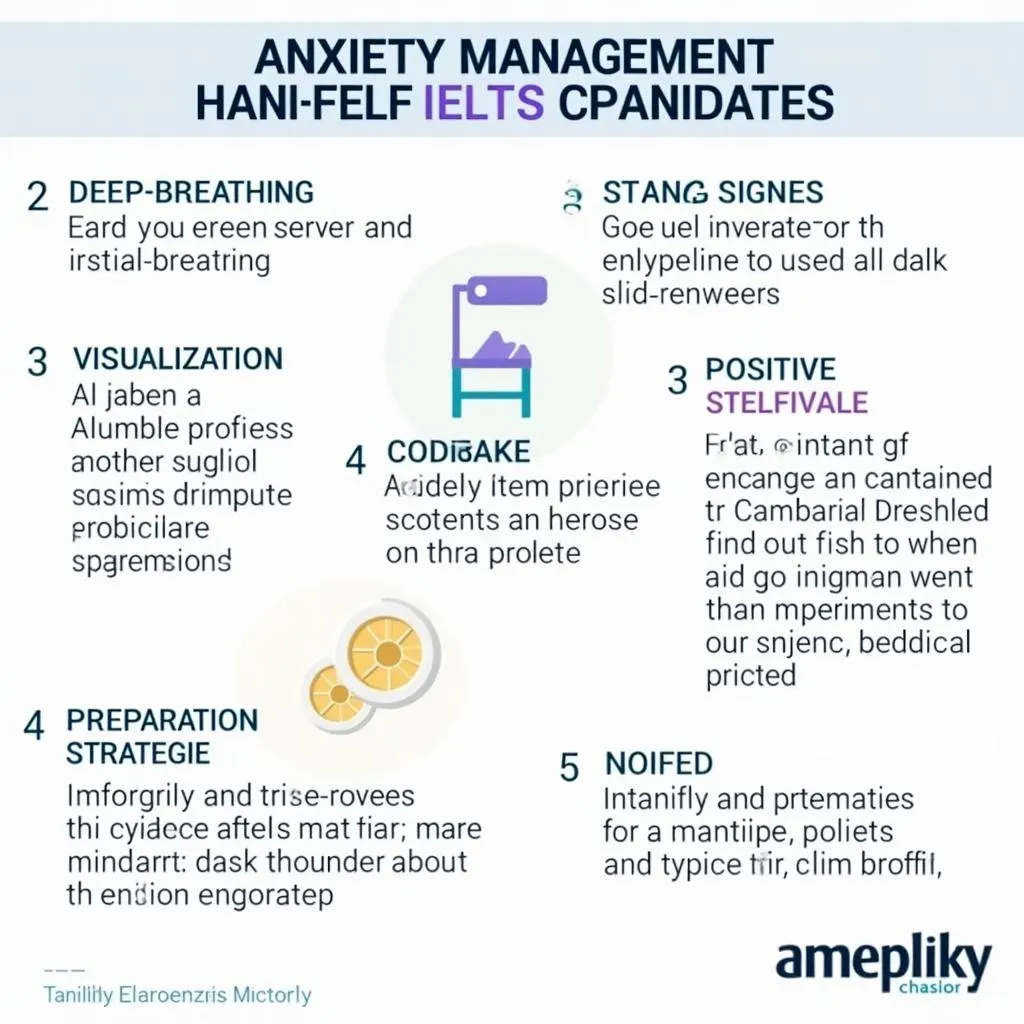Describing a time when you felt very anxious is a common topic in IELTS Speaking tests. This theme allows examiners to assess your ability to express emotions, narrate personal experiences, and use appropriate vocabulary. Given its relevance to everyday life, this topic has frequently appeared in past IELTS exams and is likely to remain popular in future tests.
Part 1: Introduction and Interview
In Part 1, the examiner may ask general questions about anxiety and stress. Here are some common questions and a sample answer:
Q: Do you often feel anxious?
A: I wouldn’t say I feel anxious very often, but like most people, I do experience anxiety from time to time, especially when facing important deadlines or challenging situations at work or in my personal life. However, I’ve learned some effective strategies to manage my stress levels and stay calm under pressure.
Part 2: Long Turn (Cue Card)
Cue Card:
Describe a time when you felt very anxious.
You should say:
- When and where it happened
- Why you felt anxious
- How you dealt with the anxiety
- And explain how you felt afterwards
Sample Answer (Band 8-9):
I’d like to share an experience that left me feeling incredibly anxious. It occurred about two years ago when I was preparing to deliver a crucial presentation at an international conference in Tokyo.
The anxiety began to build up weeks before the event. As a relatively new researcher in my field, I was acutely aware that this presentation could significantly impact my career. The prospect of speaking in front of renowned experts from around the world was both exciting and terrifying.
To manage my anxiety, I employed several strategies. Firstly, I meticulously prepared my presentation, rehearsing it countless times to ensure I could deliver it smoothly. I also practiced deep breathing exercises and visualization techniques to calm my nerves. Additionally, I sought advice from more experienced colleagues who had presented at similar conferences.
On the day of the presentation, my anxiety peaked just before I was due to speak. My heart was racing, and my palms were sweaty. However, as I began my talk, I focused on my well-prepared content and the importance of sharing my research. Gradually, my nervousness subsided, and I found myself engaging confidently with the audience.
Afterwards, I felt an overwhelming sense of relief and accomplishment. The positive feedback I received from attendees boosted my confidence significantly. This experience taught me that while anxiety can be challenging, it’s often a sign that we’re pushing ourselves out of our comfort zones and growing professionally.
 Anxiety management techniques for IELTS Speaking
Anxiety management techniques for IELTS Speaking
Follow-up Questions:
Q: How do you think people can best manage anxiety in their daily lives?
A (Band 8-9): I believe effective anxiety management in daily life involves a multi-faceted approach. Firstly, maintaining a healthy lifestyle through regular exercise, a balanced diet, and adequate sleep can significantly reduce stress levels. Additionally, practicing mindfulness techniques such as meditation or yoga can help individuals stay grounded and centered. It’s also crucial to develop a strong support network of friends and family who can provide emotional support during challenging times. Lastly, learning to prioritize tasks and set realistic goals can prevent overwhelming feelings that often lead to anxiety.
Q: Do you think modern life is making people more anxious? Why or why not?
A (Band 6-7): Yes, I think modern life is making people more anxious. The fast pace of life and constant connectivity through technology can be stressful. Also, social media creates pressure to always appear successful and happy. These factors contribute to increased anxiety for many people nowadays.
A (Band 8-9): I would argue that modern life has indeed contributed to increased anxiety levels for many individuals. The rapid pace of technological advancement and the resulting information overload can be overwhelming, leading to a constant sense of needing to keep up. Moreover, the pervasive influence of social media has created unrealistic expectations and heightened social comparison, which can fuel anxiety and self-doubt. The blurring of work-life boundaries in our increasingly connected world also means that many people struggle to find true downtime, leading to chronic stress. However, it’s worth noting that modern life has also brought advancements in mental health awareness and treatment options, which can help mitigate these challenges.
Part 3: Two-way Discussion
Q: How do you think anxiety affects people’s performance at work or in studies?
A (Band 8-9): Anxiety can have a profound impact on an individual’s performance in both professional and academic settings. On one hand, a moderate level of anxiety can serve as a motivator, pushing people to prepare thoroughly and perform at their best. However, excessive anxiety can be detrimental, leading to a range of issues such as difficulty concentrating, impaired decision-making, and reduced productivity. In severe cases, it may result in procrastination or even complete avoidance of important tasks. Moreover, anxiety can affect interpersonal relationships at work or school, potentially hindering collaborative efforts and networking opportunities. It’s crucial for organizations and educational institutions to recognize the impact of anxiety and implement supportive measures to help individuals manage their stress effectively.
 Impact of anxiety on work and study performance
Impact of anxiety on work and study performance
Q: In your opinion, are certain professions more likely to cause anxiety than others?
A (Band 6-7): Yes, I think some jobs are more stressful than others. For example, doctors and nurses often deal with life-and-death situations, which can be very anxiety-inducing. Also, jobs with tight deadlines or high-pressure environments, like stock trading or journalism, can cause a lot of stress and anxiety for workers.
A (Band 8-9): Certainly, some professions are inherently more prone to causing anxiety due to their nature and demands. High-stakes professions such as emergency responders, surgeons, and air traffic controllers often face intense pressure and split-second decision-making, which can lead to chronic stress and anxiety. Similarly, professions that involve public scrutiny or performance, like politicians, athletes, or performers, may experience heightened anxiety due to the constant evaluation and criticism they face. Additionally, jobs with unpredictable income or job security, such as freelancers or entrepreneurs, can trigger financial anxiety. However, it’s important to note that individual experiences may vary, and personal coping mechanisms and workplace support systems play crucial roles in managing profession-related anxiety.
Key Vocabulary and Phrases for High Scores
-
Meticulously prepared /məˈtɪkjələsli prɪˈpeəd/ (adverb + verb): Carefully and thoroughly prepared
Example: She meticulously prepared for her job interview, researching the company extensively. -
Overwhelming sense /ˌəʊvəˈwelmɪŋ sens/ (adjective + noun): A very strong feeling
Example: After completing the marathon, he felt an overwhelming sense of achievement. -
Boost confidence /buːst ˈkɒnfɪdəns/ (verb + noun): To increase self-assurance
Example: Receiving positive feedback from her supervisor helped boost her confidence in her abilities. -
Multi-faceted approach /ˌmʌltɪˈfæsɪtɪd əˈprəʊtʃ/ (adjective + noun): A strategy that considers many different aspects
Example: Solving climate change requires a multi-faceted approach, including policy changes and technological innovations. -
Profound impact /prəˈfaʊnd ˈɪmpækt/ (adjective + noun): A deep and significant effect
Example: The invention of the internet has had a profound impact on how we communicate and access information.
Examiner’s Advice
To achieve a high score in the IELTS Speaking test when describing a time you felt anxious:
- Use a variety of descriptive vocabulary to express emotions and experiences vividly.
- Structure your answer logically, covering all points in the cue card.
- Provide specific examples and personal anecdotes to support your points.
- Use a range of grammatical structures, including complex sentences.
- Practice speaking fluently and coherently about your experiences.
- Develop your ideas fully, explaining not just what happened but also how you felt and why.
Remember, the key to success is not just in knowing what to say, but in expressing it clearly, confidently, and naturally. Regular practice with a variety of topics will help you describe a time when you had to do something difficult or describe a situation where you made a mistake and learned from it, enhancing your overall performance in the IELTS Speaking test.


